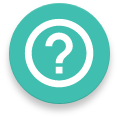Filter
Your Search By
Narrow your search by selecting one more of the pull down menus.
Search:
Type of Resource:
Language:
Country or Region:
Topic:
Channel:
Audience:
Type of Material:
Campaigns, Kits or Packages:
Search Results: 4132
- 1
- 2
- 3
- 4
- 1
- 2
- 3
- 4

